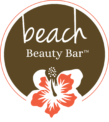PCOS is an acne trigger.
The connection between the two may not seem like an obvious pair, but hormonal imbalances can create a serious acne storm.
While 80% of the population deals with acne, women with hormonal imbalances, like PCOS, are effected at a higher rate.
So what’s the connection?
For PCOS girls, the testosterone levels tend to be higher than average. This can create excess oil production and ultimately, create the perfect situation for acne.
How?
Oil mixed with dead skin and bacteria can get into pores, cause inflammation, and create acne of all sizes.
And if that wasn’t bad enough, hormonal acne tends to be a repeat offender in certain places, like the jawline, chin, or neck.
Lastly, those with PCOS may get larger, cyst-like “knots under the skin” that can be very sensitive and take longer to heal.
So, now that you know that acne and PCOS definitely go hand-in-hand, you need the remedy to get rid of it.
Acne and Androgens
For women with PCOS, the bacteria in your skin and the sebum oil that protects your skin are unique. Breakouts with PCOS are not about understanding your ‘skin type’, washing your face more, or buying expensive creams to reverse your symptoms. It’s about understanding your body’s way of signaling that you simply need a diet and lifestyle change.
Women with PCOS tend to experience acne because of the release of hormones called androgens. High levels of androgens, also known as; hyperandrogenism, is one of the key features of PCOS.
Androgens have a significant role in the development of acne:
- They cause the glands in the skin to produce an excess of an oily substance called sebum.
- Acne occurs when sebum and dead skin cells build up inside hair follicles, trapping bacteria beneath the skin.
- It leads to inflammation and the formation of pimples.
Someone with PCOS develop acne in various areas, including the face, neck, chest and upper back.
How Does PCOS Cause Acne?
PCOS causes the ovaries to overproduce androgens, the most common of which is known as the male sex hormone testosterone, and usually only found in small amounts in women. While this overproduction of androgens mainly affects female fertility and ovulation, it is also known to trigger several hormone-related side effects, like acne.
The overproduction of androgens caused by PCOS makes the skin produce a surplus amount of sebum. When sebum and dead skin cells build up inside skin pores or hair follicles, bacteria is trapped underneath the skin and this results in acne or pimples.
Treating PCOS Related Acne
A solid skincare routine that’s designed to fight excess oiliness and acne can help to treat PCOS related acne. As well as updating your skincare routine, have a look at your lifestyle and dietary choices.
Eat Anti-Inflammatory Foods
Combat systemic inflammation with the right diet.
Focus on eating more natural foods like seasonal fruits and vegetables and lean meats. We particularly love leafy greens like spinach, kelp, mustard leaves, lettuce, arugula and collard. Healthy fats like coconut oil also have an anti-inflammatory action. Other fats to add to your diet include grass-fed butter, ghee, olive oil, sesame oil, avocados, salmon, nuts and seeds. Turmeric, ginger, garlic and green tea offer many health benefits and should be a part of your PCOS diet.
The idea is to focus your diet on healthy and naturally anti-inflammatory foods.
Foods that are natural anti-inflammatories include:
- Walnuts
- Almonds
- Spinach
- Tomatoes
- Salmon
- Kale
Foods that can cause inflammation include:
- White Bread
- White Potatoes
- Sugary Desserts
- Red Meat
Increase the number of anti-inflammatory foods and reduce the inflammatory foods and see if it works for you. Researchers have found that fitting certain healthy foods into your daily routine can help fight back against your complexion woes by turning off inflammatory genes and providing your body with the proper tools to strengthen and build healthy tissues.
Take Probiotics
PCOS and acne are both linked to gut health.
Gut microbiota influences systemic inflammation and may also have important implications in cystic acne. While probiotic supplements are an easy way to ensure gut health, you can also add natural probiotics to your diet. Bone broth, Kefir, Kombucha, Kimchi, Miso, pickles and other fermented foods that contain healthy probiotic bacteria strains.
Control your Stress!
High stress causes increased output of cortisol, and that causes more acne.
Some simple recommendations would be: Listening to a guided imagery podcast for stress, take a course in meditation, learn progressive relaxation or tapping, get massages, or all of the above!
The mind controls your stress level and your immune system’s responses and YOU can control your mind with practice!
Sleep….
A critical element related to inflammation. Just one night of sleep deprivation results in elevated markers of inflammation. Maintaining your Circadian Rhythm is a key element of health and the management of your acne. Wake and sleep consistently and get 7-8 hours of sleep nightly.
The Takeaway
The more insulin your body creates, the more hormones your body creates to compensate – the cause of clogged pores and ultimately breakouts and acne.
Overall, research does suggest lifestyle change to be the FIRST line of treatment for women dealing with PCOS and PCOS-related symptoms.
Schedule your initial consultation with us & we will get you on the road to begin your clear skin journey and freedom from acne.
Cheers to clear!
Rene

